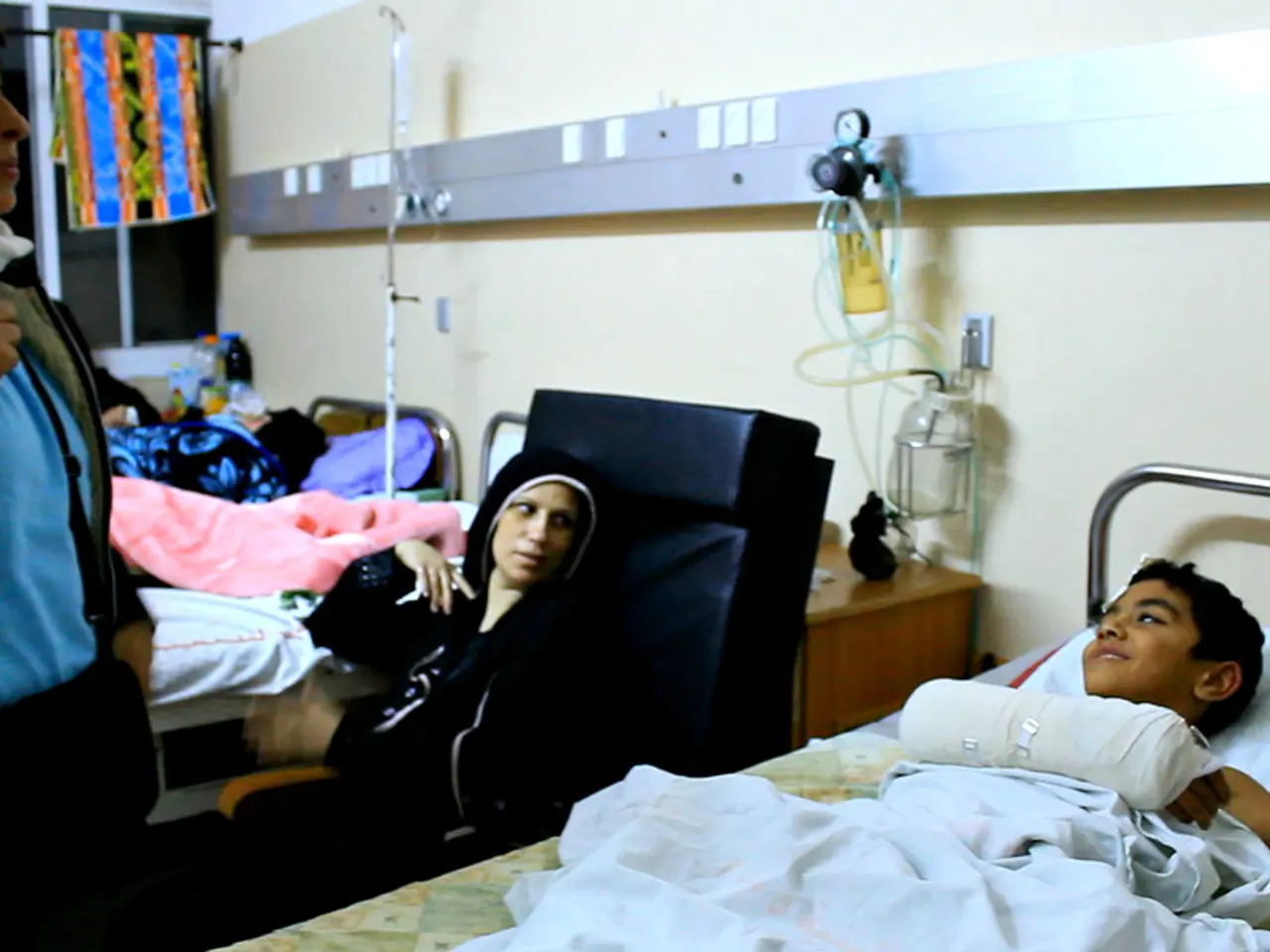Unveiled data suggests continued employment of medical professionals in the UK, suspected of sexual assault and rape.
In light of a recent investigation by The Independent, revealing systemic issues of sexual assault and harassment within the UK's healthcare sector, there is growing concern over the safety of both patients and staff.
Helen Hughes, chief executive of Patient Safety Learning, and Jacob Lant, chief executive of National Voices, have expressed their serious concerns about the matter. Lant emphasised the importance of prioritising patient safety during investigations, while Hughes stressed the need for robust processes to safeguard all parties involved.
The investigation highlighted several alarming cases, including a nurse or midwife who was accused of accessing category A images of child sexual abuse, yet the Nursing and Midwifery Council (NMC) took no action. Similarly, between 2018 and 2024, approximately 248 doctors faced allegations of rape, sexual assault, or attempted rape, yet no interim orders were made, and all accused doctors were allowed to continue practicing without having their licenses suspended.
In 2018, a doctor accused of murder had no restrictions placed on their ability to practice in the UK. Another doctor who sexually assaulted colleagues was allowed to continue practicing as long as they informed the General Medical Council of their job movements.
These findings reiterate the need for addressing and protecting the safety of both patients and staff within the UK's healthcare system. The NMC has been accused of turning a "blind eye" to toxic behaviours, including racist, sexual, and physical abuse.
However, the UK government and various organisations are taking steps to address these issues. From 1 August 2025, the Office for Students (OfS) mandates all universities in England to implement measures aimed at ending the culture of silence around sexual assault and harassment, supporting survivors, and creating safe, respectful environments.
The British Medical Association (BMA) and NHS trusts have been urged to collectively intensify prevention efforts against sexual harassment within NHS workplaces. At the BMA annual meeting in June 2025, there was overwhelming support for establishing a national reporting structure and improving victim support.
UNISON, the largest trade union representing healthcare workers, has highlighted the scale of sexual harassment and violence against women in healthcare, labelling it a "national emergency." They are focused on education, empowerment, and eradicating abuses of power in healthcare environments.
The UK Government's Women, Peace and Security National Action Plan includes new legal and operational measures with direct relevance to protecting women, which indirectly benefits healthcare workers. These include Domestic Abuse Protection Orders, new criminal offences for spiking, enhanced stalking laws, and the establishment of a National Policing Centre for Violence Against Women and Girls, backed by significant funding.
In conclusion, the UK has implemented multi-level strategies encompassing regulatory reforms in education, calls for improved NHS policies and reporting structures, strong union advocacy, and government-led legislative and enforcement measures to tackle systemic sexual assault and harassment issues in healthcare and beyond. These coordinated actions reflect a growing commitment to cultural change, victim support, and prevention across institutions connected to healthcare.
[1] Source: https://www.nus.org.uk/en/research-and-analysis/national-student-survey/2020/sexual-assault-and-harassment/ [2] Source: https://www.bma.org.uk/news/press-releases/2025/june/bma-calls-for-national-reporting-structure-to-combat-sexual-harassment-in-nhs [3] Source: https://www.theguardian.com/society/2025/jun/25/nhs-trusts-urged-to-tackle-sexual-harassment-after-bma-vote [4] Source: https://www.unison.org.uk/news/articles/2024/april/unison-survey-reveals-shocking-scale-of-sexual-harassment-and-violence-against-women-in-healthcare/ [5] Source: https://www.gov.uk/government/publications/women-peace-and-security-national-action-plan-2021-to-2026/women-peace-and-security-national-action-plan-2021-to-2026
- The concerns about safety in the UK's healthcare sector extend beyond just physical health, with mental-health professionals like Helen Hughes of Patient Safety Learning advocating for robust processes to safeguard all parties involved.
- The revelation of systemic issues in the healthcare sector has prompted an increased focus on sexual-health education and prevention, with the Office for Students in England mandating universities to address the culture of silence around sexual assault and harassment from 2025.
- In line with this, politics and general-news platforms are following the UK government's efforts closely, as new legal measures are implemented to protect women, indirectly benefiting healthcare workers, and to tackle crimes such as spiking and stalking, often linked to crime-and-justice issues.




